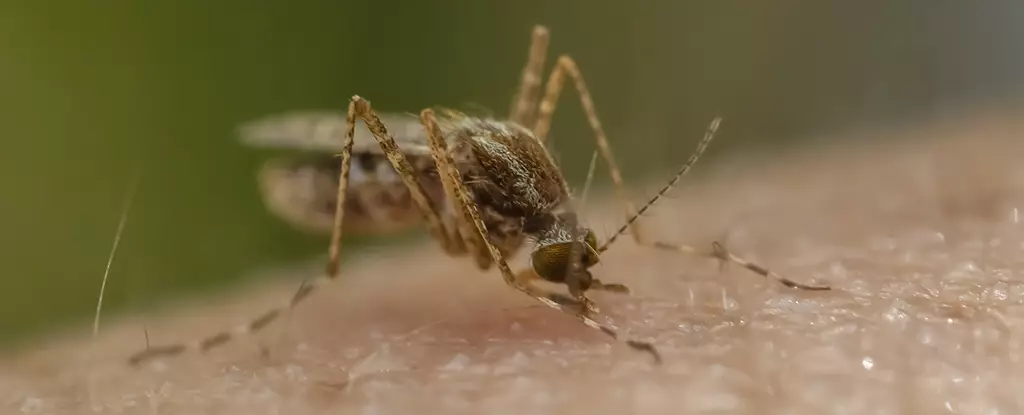Malaria remains one of the world’s most persistent public health challenges, with hundreds of thousands of lives claimed annually. Most discussions around combating malaria typically highlight chemical treatments and preventive measures rather than harnessing the very organisms responsible for its transmission. However, recent research suggests that a novel approach utilizing genetically modified mosquitoes may unlock groundbreaking advancements in malaria vaccination, providing a new layer of hope in the fight against this dangerous disease.
Researchers at Leiden University and Radboud University in the Netherlands have developed a second-generation vaccine utilizing a weakened version of the Plasmodium falciparum parasite, the primary causative agent of malaria in humans. This innovative vaccine—GA2—demonstrates remarkable success compared to existing vaccines. In a study, eight out of nine young adults who were administered the GA2 vaccine experienced complete protection against malaria. In stark contrast, only one of eight participants immunized with the previous vaccine, GA1, achieved similar immunity.
This success is attributed to the vaccine’s method of delivery, wherein the genetically modified parasite is inoculated into the host via a mosquito bite. The strategically engineered parasite does not cause malaria itself but instead triggers a robust immune response. As formulated by vaccinologist Meta Roestenberg, the modified organisms are incapable of developing fully within the host liver, thereby preventing the onset of disease symptoms while still stimulating the immune system’s defenses.
One of the pivotal aspects of the GA2 vaccine is its capacity to extend the maturation period of the Plasmodium falciparum parasite within the liver. Unlike the GA1 variant, which matures within 24 hours, GA2 takes nearly a week to develop. This elongated timeframe provides the immune system with a crucial advantage—time to recognize the parasite and mount an effective counter-response. Consequently, the GA2 vaccine initiates a broader and more diverse immune cell response, a significant factor contributing to its enhanced efficacy.
The implications of these findings are twofold. Firstly, they illuminate how modifications to the vaccine can lead to superior immune responses. Secondly, they prompt further exploration into the mechanisms underpinning this effectiveness, potentially leading to additional refinements that could enhance vaccination strategies.
Concerns about the safety of new vaccines are always paramount. In the study, side effects were largely mild and consisted mainly of localized redness and itchiness surrounding the mosquito bite sites. All participants were also prescribed anti-malaria medications post-study, underscoring the commitment to health and safety in clinical research.
While the findings regarding GA2 are historic, deploying such a vaccine on a global scale presents challenges. Although it adeptly mimics natural infection by utilizing a mosquito delivery mechanism, widespread implementation would require significant logistical and infrastructural adaptations. Critics argue that while the research shows promise, making a vaccine accessible in remote and malaria-endemic regions is fraught with difficulties.
Despite advancements like the GA2 vaccine, malaria continues to affect nearly 250 million individuals yearly, with current vaccine options providing only temporary protection for about half of the population. The global health community must persist in exploring innovative solutions that can offer longer-lasting immunity and reach vulnerable populations effectively.
Ultimately, the exploration of genetically modified mosquitoes as a vector for vaccination marks a transformative step in malaria prevention strategies. As research continues, the potential for these advanced vaccines not only to improve protection against malaria but also to reshape the landscape of vaccine delivery could provide future generations with the tools necessary to eradicate this age-old disease once and for all.
While the promise of the GA2 vaccine is evident, the road ahead will necessitate a focus on practical implementation of such technologies, alongside continual research to enhance efficacy and safety in the ongoing battle against malaria. The intersection of innovative science and practical public health policy will be critical in achieving a malaria-free future.


Leave a Reply